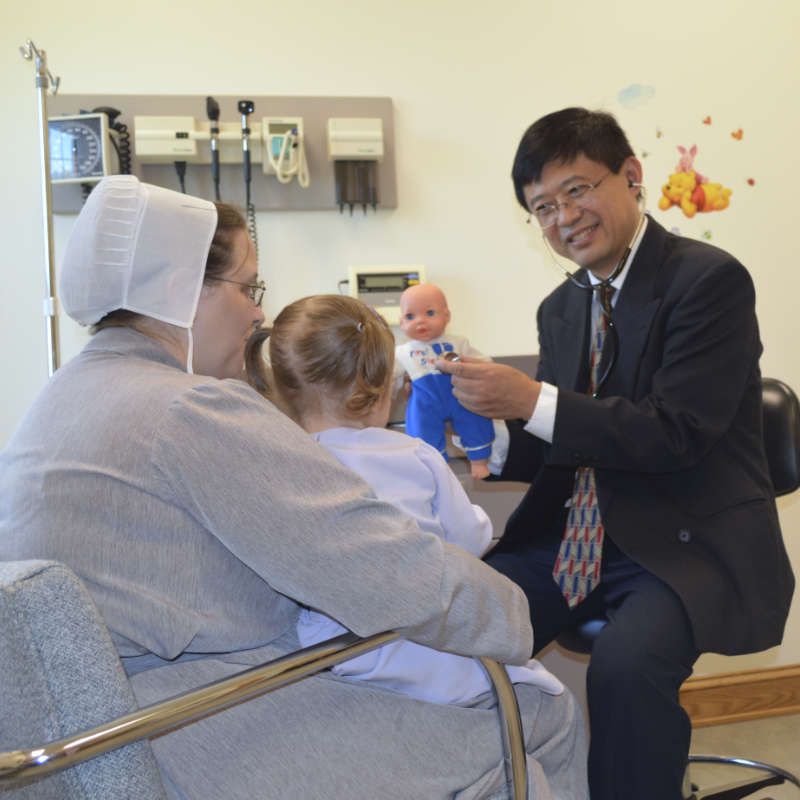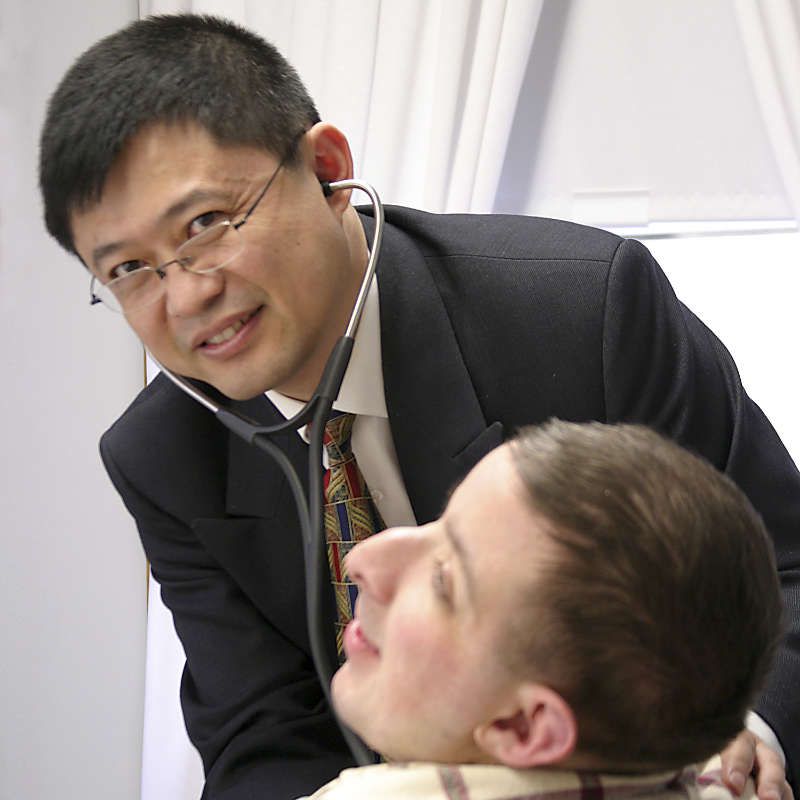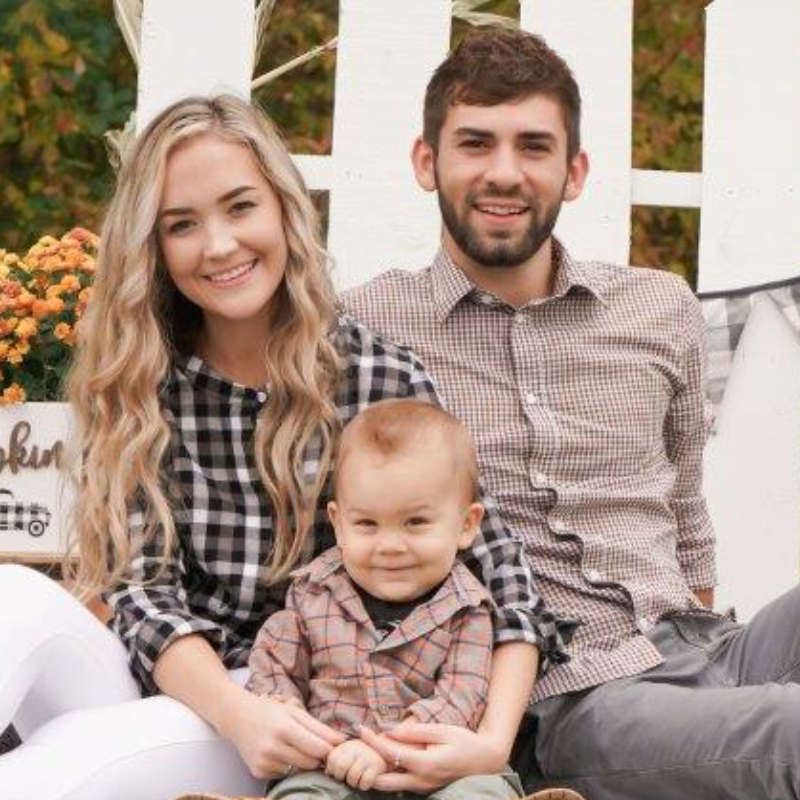Our Patient Care
Our clinic provides highly personalized, comprehensive healthcare for children, adolescents and adults with special needs caused by rare genetic disorders.
Children commonly visit a physician six times during their first year, three in their second year and annually thereafter. Special needs children, however, require more extensive care than typically developing children. They often have complex medical needs, and their conditions are very difficult and time-consuming to diagnose and treat.
Health issues faced by special needs children are generally more serious; the patients we see have multiple, chronic and sometimes life-threatening diseases. Early diagnosis and treatment are critical to managing their conditions and achieving the best possible outcomes.
Comprehensive Care
 As a non-profit outpatient clinic, we provide preventive, primary and specialty care that’s close to home, saving families in our rural community from traveling to large urban areas to get the medical services their children need.
As a non-profit outpatient clinic, we provide preventive, primary and specialty care that’s close to home, saving families in our rural community from traveling to large urban areas to get the medical services their children need.
We serve our special needs patients, most of whom are Amish, in a warm, caring, supportive environment. Following the American Academy of Pediatrics (AAP) model for a medical home, we deliver patient care that’s accessible, continuous, comprehensive, family-centered, coordinated, compassionate and culturally sensitive.
We provide medical services for children with more than 160 different rare diseases, managing as much patient care as possible in house. Our clinic’s pediatrician follows every child as his or her primary care physician, while our nursing staff monitors well-child visits, tracking development and keeping essential immunizations up-to-date. Technicians in our onsite laboratory perform the critical diagnostic services necessary to confirm our diagnoses.
We also have a Family Heart Center which provides diagnosis and treatment of genetic cardiac conditions in children and adults. Focusing on highly specialized care, the center offers affordable testing and treatment for patients with heart diseases such as cardiomyopathy and Long QT syndrome.
Working With Families
 Our family-centered approach to patient care is considerably different from traditional medical facilities. Families, even grandparents, come with their children during the initial visit, which typically lasts 120 minutes. As we can learn much from extended conversations and sharing of information, we spend a great deal of time talking with each patient family, collecting complete family and medical histories.
Our family-centered approach to patient care is considerably different from traditional medical facilities. Families, even grandparents, come with their children during the initial visit, which typically lasts 120 minutes. As we can learn much from extended conversations and sharing of information, we spend a great deal of time talking with each patient family, collecting complete family and medical histories.
The valuable knowledge we gain from working closely with our patient families provides us with a greater depth of understanding, helping us to diagnose our patients’ conditions and informing our care and treatment protocols.
Continuity of Care
Children with genetic conditions are living longer, in part due to advances in research and quality of care. They may develop unrelated adult diseases or long-term complications resulting from their genetic disorders.
As our special needs patients grow and mature into adolescence and adulthood, we continue to provide the highly personalized and comprehensive care they require. Our continuity of care provides a seamless transition for families as their children’s needs change and evolve over time. By providing all the care our patients need as they grow older, our clinic is truly a lifelong medical home for those in our community who are affected by rare disease, regardless of age.
Additional Patient Services
Committed to providing the best possible comprehensive care, we offer additional patient services including onsite sub-specialty clinics held throughout the year in partnership with other medical institutions. In addition, we offer patient assistance programs to help families obtain critical medications and nutritional supplements.
Helping Patients Beyond Our Community
 We’ve helped more than 1,500 patient families in our area, across the U.S. and around the world. Known for our expertise in diagnosing and treating rare genetic conditions, our clinic is recognized as a leading international medical facility for such complex disorders as:
We’ve helped more than 1,500 patient families in our area, across the U.S. and around the world. Known for our expertise in diagnosing and treating rare genetic conditions, our clinic is recognized as a leading international medical facility for such complex disorders as:
- Prolidase deficiency
- Cohen syndrome
- Ganglioside GM3 synthase deficiency
- Glucose-galactose malabsorption
- TMCO1 defect syndrome
- SAMS association
- HERC2 defect syndrome
- Cockayne syndrome
- Hypertrophic cardiomyopathy
- Microcephalic osteodysplastic primordial dwarfism type I
- Pyruvate kinase deficiency
- Byler disease
- Galloway-Mowat syndrome
- Troyer syndrome
- Tatton-Brown-Rahman syndrome
Give the Gift of Hope to Families
With your help, special children can get the life-changing care they need.
Donate to our clinic
